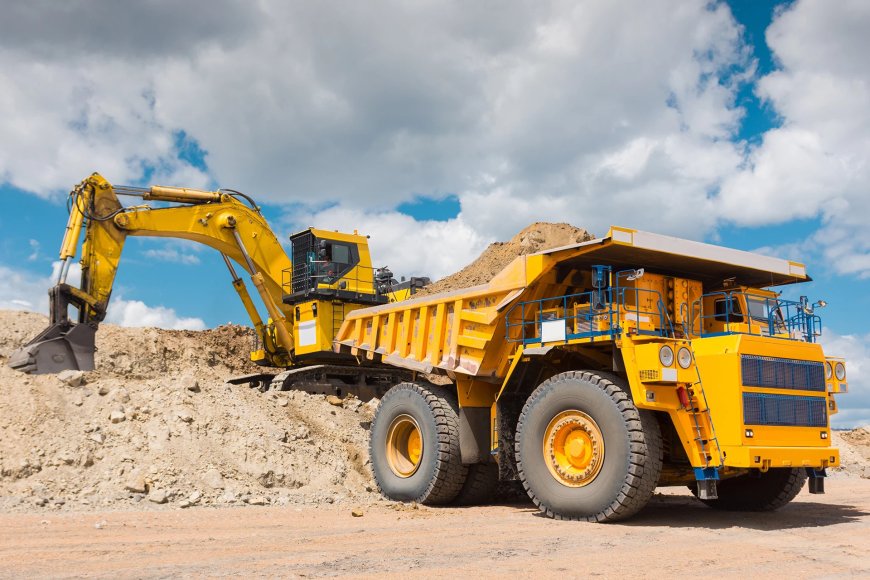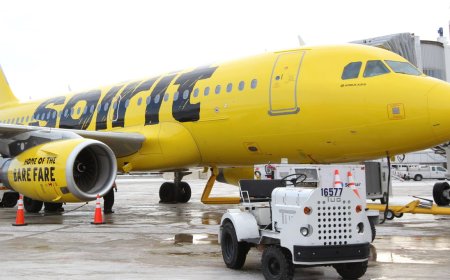Beginner’s Guide to Construction Equipment Rentals
This guide is designed for beginners looking to understand the basics of construction equipment rentals and make informed decisions without overspending or compromising on quality.

Renting construction equipment can be a smart and cost-effective solution for contractors, builders, and even individuals managing one-time projects. Whether you're working on a commercial construction job or a residential project, knowing how to choose the right equipment, where to find it, and how the rental process works is essential.
This guide is designed for beginners looking to understand the basics of construction equipment rentals and make informed decisions without overspending or compromising on quality.
Why Rent Instead of Buy?
One of the most important questions for any project manager or contractor is whether to rent or buy equipment. While purchasing can be beneficial for long-term needs, renting is often the better choice for several reasons:
-
Lower Upfront Costs: Rentals eliminate the need for large capital investments.
-
Flexibility: You can rent exactly what you need for each job.
-
No Maintenance Hassles: Rental companies typically handle maintenance and repairs.
-
Access to Newer Equipment: Rental fleets often feature updated, efficient models.
If your usage is occasional or project-specific, renting is usually the more economical route.
Commonly Rented Construction Equipment
There are numerous types of equipment available for rent depending on the job requirements. Some of the most commonly rented machines include:
-
Excavators – Ideal for digging and earthmoving.
-
Skid Steer Loaders – Useful for material handling and landscaping.
-
Backhoes – Great for small demolition and excavation tasks.
-
Cranes – Needed for lifting heavy materials or structures.
-
Concrete Mixers – Perfect for small- to medium-sized concrete jobs.
-
Scissor Lifts and Boom Lifts – Essential for safe access to elevated areas.
Knowing what each machine does will help you select the right tool for your job.
Understanding Rental Terms and Costs
Before signing a rental agreement, it's important to understand the common terms and costs involved. Most rental agreements are based on:
-
Duration – Hourly, daily, weekly, or monthly rates.
-
Delivery and Pickup Fees – Transporting heavy equipment can add extra costs.
-
Insurance and Damage Waivers – These protect both parties in case of equipment damage.
-
Fuel Charges – Some agreements require the renter to return equipment with a full tank.
Always read the fine print and clarify any ambiguities before finalizing a rental.
Visit "Machinery-net" Marketplace
If you’re unsure where to begin your equipment rental search, Machinery-net Marketplace is an excellent starting point. It's a comprehensive online platform that connects renters with trusted suppliers across various regions. Whether you're looking for a short-term rental or a longer lease, Machinery-net offers a wide selection of machinery, clear rental terms, and competitive pricing.
Some benefits of using the Machinery-net Marketplace include:
-
Wide Selection – Search by equipment type, location, or rental duration.
-
Verified Listings – All equipment is vetted to ensure quality and performance.
-
Ease of Comparison – Quickly compare rates and machine specs from different vendors.
-
User Reviews – Gain insights from other customers’ experiences.
Using a marketplace like Machinery-net simplifies the rental process and helps avoid the risks associated with unknown vendors.
Tips for First-Time Renters
If you're new to equipment rentals, here are a few practical tips to help you avoid common pitfalls:
-
Assess Your Needs Accurately: Understand your project’s scope to choose the right equipment size and type.
-
Check Machine Availability in Advance: Especially during peak seasons, popular equipment can be in high demand.
-
Inspect Equipment Before Use: Always check for any visible damage and test the machine briefly before operating it.
-
Understand the Controls: Ask for a quick tutorial or user manual if you’re unfamiliar with the machine.
-
Keep a Record: Take photos and note the equipment’s condition at the time of delivery and return to avoid disputes.
Safety and Training Considerations
Operating construction equipment comes with safety risks. Even if you're renting for a short period, it's essential to follow proper safety protocols. This includes:
-
Using Protective Gear: Helmets, gloves, and boots are a must.
-
Operator Training: Ensure only trained personnel handle machinery.
-
Adhering to Load Limits: Never exceed the equipment’s rated capacity.
-
Safe Storage: Park equipment in secure locations when not in use.
Some rental companies may also offer on-site training or certified operators for an additional fee.
Final Thoughts
Construction equipment rentals offer flexibility, affordability, and access to a variety of tools needed to complete jobs efficiently. For beginners, understanding the basics—from equipment types and rental costs to safety and reliable vendors—is crucial.
By starting with a reputable platform like Machinery-net Marketplace, you can find the right equipment, compare options, and rent with confidence. Whether you're managing a small home renovation or a large commercial project, renting the right machinery can streamline your workflow, keep your budget in check, and ensure your project stays on schedule.


















































































